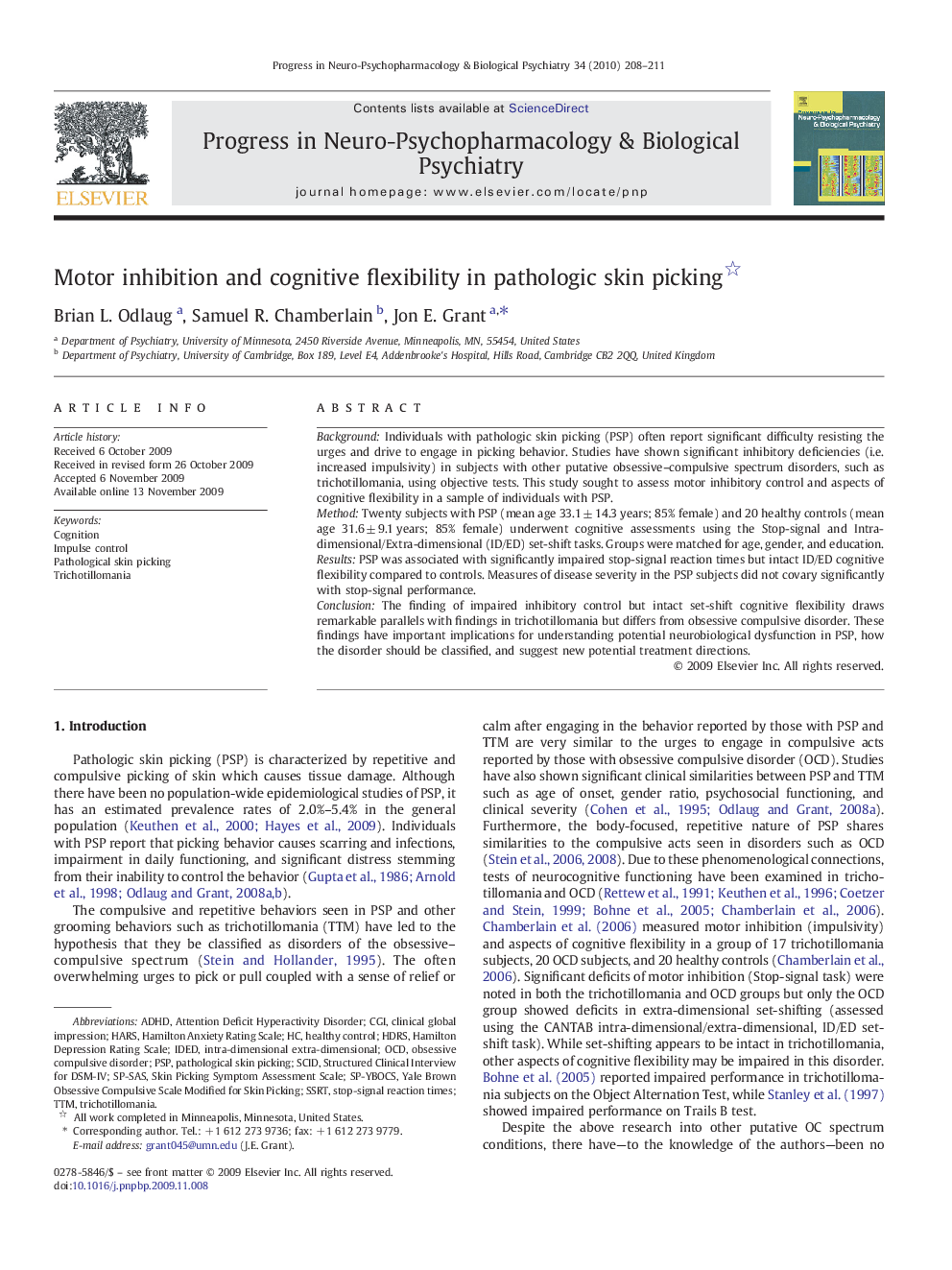| Article ID | Journal | Published Year | Pages | File Type |
|---|---|---|---|---|
| 2565193 | Progress in Neuro-Psychopharmacology and Biological Psychiatry | 2010 | 4 Pages |
BackgroundIndividuals with pathologic skin picking (PSP) often report significant difficulty resisting the urges and drive to engage in picking behavior. Studies have shown significant inhibitory deficiencies (i.e. increased impulsivity) in subjects with other putative obsessive–compulsive spectrum disorders, such as trichotillomania, using objective tests. This study sought to assess motor inhibitory control and aspects of cognitive flexibility in a sample of individuals with PSP.MethodTwenty subjects with PSP (mean age 33.1 ± 14.3 years; 85% female) and 20 healthy controls (mean age 31.6 ± 9.1 years; 85% female) underwent cognitive assessments using the Stop-signal and Intra-dimensional/Extra-dimensional (ID/ED) set-shift tasks. Groups were matched for age, gender, and education.ResultsPSP was associated with significantly impaired stop-signal reaction times but intact ID/ED cognitive flexibility compared to controls. Measures of disease severity in the PSP subjects did not covary significantly with stop-signal performance.ConclusionThe finding of impaired inhibitory control but intact set-shift cognitive flexibility draws remarkable parallels with findings in trichotillomania but differs from obsessive compulsive disorder. These findings have important implications for understanding potential neurobiological dysfunction in PSP, how the disorder should be classified, and suggest new potential treatment directions.
